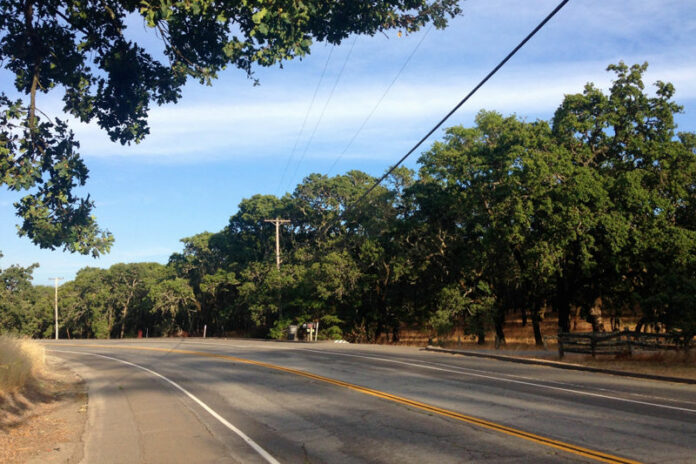End of negotiations means tribe will build its own plant adjacent to Deer Creek neighborhood, take back its $20 million in community funds
The town of Windsor released a statement dated June 9 announcing the end of negotiations between the Lytton Band of Pomo Indians and the town for wastewater treatment services.
The discussions have been ongoing since May of 2020, and were meant to foster a positive relationship between the tribe and the town, provide services to the tribe, prevent the construction of a wastewater treatment plan immediately adjacent to the Deer Creek subdivision and also provide the town with a cash windfall for a community project.
The announcement of the end of negotiations comes as a serious blow and a surprise to the town. The tribe and the negotiations are a standing item on town council agendas, and there’s been no hint of the change in recent meetings.
“The Lytton Rancheria tribe recently informed the town of Windsor that it is ending negotiations that called for the town to provide wastewater treatment services to residential homes and community facilities on tribal lands located outside of the town’s Urban Growth Boundary (UGB),” the statement reads. “The decision by the tribe ends the agreement reached between the town and the tribe in May of 2020 allowing the tribe to connect to the town’s wastewater system to avoid construction of a wastewater treatment plant at the edge of town next to an existing residential neighborhood.
“The agreement was intended to protect the community from potential impacts associated with the operation of a wastewater treatment plant, including odors and water contamination,” continued the statement. “Further, the agreement enabled the tribe to avoid the cost of building and operating its own treatment facility and would have freed up additional land for the tribe to meet the housing needs of its members. As part of the 2020 agreement, the tribe was to pay the town $20 million to provide funding for a future community benefit project and for improvements to the town’s wastewater treatment plant.”
Reached by phone, Lytton Tribe spokesperson Doug Elmets told SoCoNews that the tribe had only a brief statement at this time.
“We were not able to reach an agreement, and we will be moving forward to build our own wastewater treatment plant,” Elmets said.
The town’s statement identifies a change in the scope of the tribe’s needs that precipitated the breakdown.
“Following months of collaboration on the technical details for implementation of the May 2020 agreement, the tribe surprised the town in March 2021 with a request to change the agreement to allow for construction of the wastewater treatment plant that the agreement was intended to prevent,” the town said. “The tribe advised the town that the change was needed to accommodate development of a planned resort on tribal lands near Eastside Road and that there was no other acceptable location for a wastewater treatment plant on the 511 acres of tribal lands in the area.”
According to the town, it countered the tribe’s request with a proposal to allow the resort to also connect to the town’s wastewater system — subject to a binding vote by Windsor voters which is required to extend town services to a commercial operation such as a resort outside of the UGB. The town proposed a payment of $10 million to reimburse the town for preparing environmental review documents required by the California Environmental Quality Act, preparing potential policy amendments to the town’s General Plan and taking on administrative responsibilities and costs associated with placing a measure on the ballot. The town also asked the tribe to offer $20 million to offset impacts of the resort and to support a future community benefit project. The $20 million payment would only be due if the ballot measure was successful.
According to the town’s announcement, the tribe rejected the counteroffer and informed the town “that it was ending discussions on the agreement and proceeding with construction of a wastewater treatment plant on tribal lands.”
“Following this action by the tribe, the town offered to sponsor a ballot measure that would allow the tribe to connect the resort to the town’s wastewater system and prepare required environmental review documents at no cost to the tribe, contingent on the tribe agreeing to proceed with the agreement to connect the residential development to the town’s wastewater treatment plant. The town would also agree to accept a reduced total payment of approximately $16.5 million to connect both the residential development and resort development to the town’s wastewater treatment plant. The tribe did not accept this offer.”
“The town is surprised and disappointed that after negotiating in good faith with the tribe they suddenly reversed course and ended discussions on what would have been a win-win agreement. The town worked very hard to prevent a wastewater treatment plant being built adjacent to the Deer Creek subdivision and to help the tribe avoid having to build and operate a new treatment plant,” said Town Manager Ken MacNab in a statement, adding that the town remains open to continuing discussions with the tribe.
The end of the negotiations also likely signals the end of the town’s long-dreamed for public pool, which many residents had been pushing for as the community project paid for by the Lytton Tribe.
To see the history of the Lytton’s project and the wastewater negotiations, go here.
43.6
F
Healdsburg
November 15, 2024








